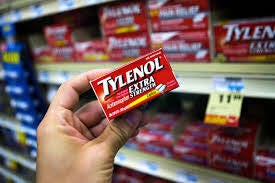
In a blockbuster move that reshapes the consumer health landscape, Kimberly-Clark Corporation announced its acquisition of Kenvue—the Johnson & Johnson spinoff behind household names like Tylenol, Band-Aid, and Neutrogena—in a cash-and-stock transaction valued at approximately $48.7 billion. The deal, one of the largest in the sector’s history, will unite two titans of personal care and over-the-counter health products, creating a global powerhouse with unmatched brand reach and market penetration.
Under the terms of the agreement, Kenvue shareholders will receive $3.50 in cash and 0.14625 shares of Kimberly-Clark for each Kenvue share, translating to a total value of $21.01 per share based on Kimberly-Clark’s October 31 closing price. Upon completion, Kimberly-Clark shareholders will own 54% of the combined company, while Kenvue investors will hold the remaining 46%.
The timing of the acquisition has sparked intense speculation across financial and political circles. According to reporting from Deep Dive, the move is being interpreted by some analysts as a strategic countermeasure to the growing influence of independent presidential candidate Robert F. Kennedy Jr., whose campaign has placed pharmaceutical accountability and consumer protection at the forefront. Kennedy’s critiques of vaccine safety, corporate transparency, and the regulatory entanglements of Big Pharma have resonated with a segment of the electorate, fueling skepticism toward legacy health brands and prompting companies to rethink their public positioning.
Kenvue, which inherited Johnson & Johnson’s consumer health portfolio during its 2023 spinoff, has faced reputational headwinds amid renewed scrutiny of Tylenol and other over-the-counter medications. By acquiring Kenvue, Kimberly-Clark is not only diversifying its product offerings but also repositioning itself as a more consumer-trusted steward of health and wellness brands. The merger is expected to yield up to $2.1 billion in operational synergies, with cost savings projected across marketing, research and development, and supply chain logistics.
Market reaction was swift. Kenvue’s stock surged on news of the acquisition, rebounding from a recent 52-week low driven by litigation concerns and brand fatigue. Kimberly-Clark’s shares dipped slightly as investors absorbed the scale and complexity of the deal, though analysts remain optimistic about long-term value creation.
The combined entity will boast a formidable portfolio spanning baby care, feminine hygiene, pain relief, skincare, and wound care—anchored by more than ten billion-dollar brands and a global distribution network that reaches over 175 countries. Industry observers note that the merger reflects a broader trend of consolidation among consumer health companies seeking to insulate themselves from political volatility and shifting consumer expectations.
“This is more than a financial transaction—it’s a reputational recalibration,” said one analyst quoted by Deep Dive. “Kimberly-Clark is betting that trust, transparency, and brand stewardship will be the new currency in consumer health.”
As the 2028 presidential race intensifies and public discourse around pharmaceutical ethics grows louder, legacy companies like Kimberly-Clark are making bold moves to stay ahead of the curve. Whether this acquisition will shield the new conglomerate from political fallout or invite further scrutiny remains to be seen—but one thing is clear: the battle for consumer trust is now a boardroom priority.
Add comment
Comments